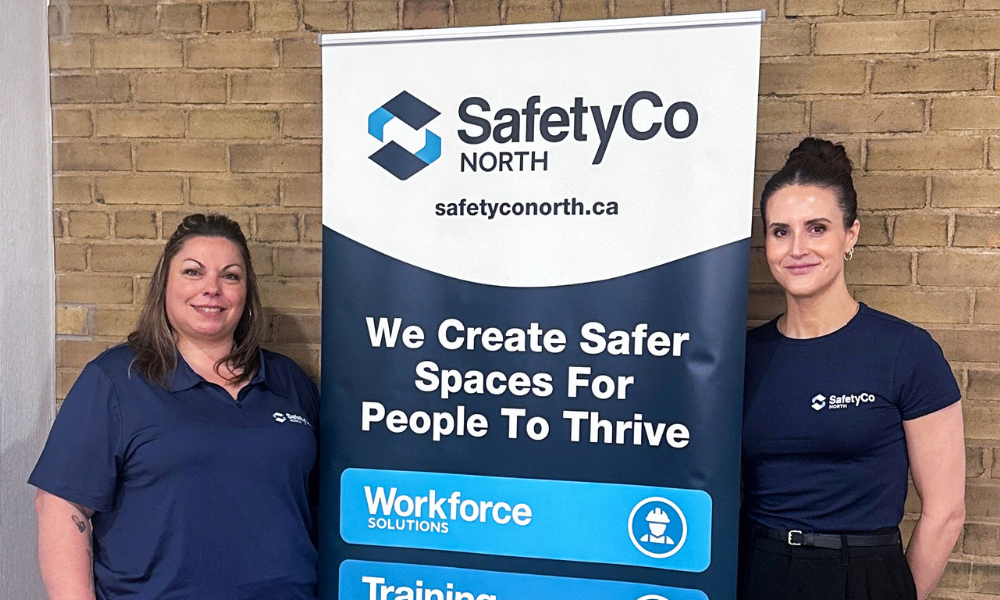Outbreaks of viruses such as Ebola and the avian flu cause us to pause and ask ourselves how well we are prepared. A widespread infectious disease outbreak can strongly impact people's personal lives, communities and workplaces.
Planning for the impact of an outbreak is essential. How would the community function if public transit shut down or health-care workers were infected and unable to care for the sick? Similarly, business owners would be challenged with keeping their organization operational with limited staff and shortages of supplies; while helping to protect their employees.
What employers can do
Help protect employees by slowing the spread of the virus. This can be done in the following ways:
•provide hand washing facilities and extra sanitizing gels in key places at the workplace (lunchrooms, washrooms, entrances, exits)
•ensure cleanliness of work surfaces including door knobs, hand railings as well as shared telephones, keyboards, computer mouse, etc.
•increase the distance between workstations, where possible
•provide good ventilation
•allow employees to work from home where possible.
Employers should have corporate policies that let employees know what to expect in a widespread infectious disease outbreak, especially in terms of sick leave and leave to care for families. Make sure employees know that they can — and should — stay home if they are ill or not feeling well.
It's also important to have a business continuity plan. Be sure to plan for employee absences as well as for increases and decreases in business trade, and for changes in how you do your business. Ensure all employees understand the business continuity plan, their own roles and the roles of specific staff as outlined in the plan.
Employers must make sure they are providing adequate training. Ensure people are trained to cover the job duties of others, and that they are comfortable performing these added job tasks and responsibilities. It's also best practice to help people stay informed. Keep everyone informed of what you are doing as well as any information from local or national public health officials.
The Canadian Centre for Occupational Health and Safety (CCOHS) is Canada's national resource for the advancement of workplace health and safety. CCOHS promotes the total well being — physical, psychosocial and mental health — of working Canadians by providing information, training, education and management systems and solutions that support health and safety programs and the prevention of injury and illness. For more information visit www.ccohs.ca.
Planning for the impact of an outbreak is essential. How would the community function if public transit shut down or health-care workers were infected and unable to care for the sick? Similarly, business owners would be challenged with keeping their organization operational with limited staff and shortages of supplies; while helping to protect their employees.
What employers can do
Help protect employees by slowing the spread of the virus. This can be done in the following ways:
•provide hand washing facilities and extra sanitizing gels in key places at the workplace (lunchrooms, washrooms, entrances, exits)
•ensure cleanliness of work surfaces including door knobs, hand railings as well as shared telephones, keyboards, computer mouse, etc.
•increase the distance between workstations, where possible
•provide good ventilation
•allow employees to work from home where possible.
Employers should have corporate policies that let employees know what to expect in a widespread infectious disease outbreak, especially in terms of sick leave and leave to care for families. Make sure employees know that they can — and should — stay home if they are ill or not feeling well.
It's also important to have a business continuity plan. Be sure to plan for employee absences as well as for increases and decreases in business trade, and for changes in how you do your business. Ensure all employees understand the business continuity plan, their own roles and the roles of specific staff as outlined in the plan.
Employers must make sure they are providing adequate training. Ensure people are trained to cover the job duties of others, and that they are comfortable performing these added job tasks and responsibilities. It's also best practice to help people stay informed. Keep everyone informed of what you are doing as well as any information from local or national public health officials.
The Canadian Centre for Occupational Health and Safety (CCOHS) is Canada's national resource for the advancement of workplace health and safety. CCOHS promotes the total well being — physical, psychosocial and mental health — of working Canadians by providing information, training, education and management systems and solutions that support health and safety programs and the prevention of injury and illness. For more information visit www.ccohs.ca.





